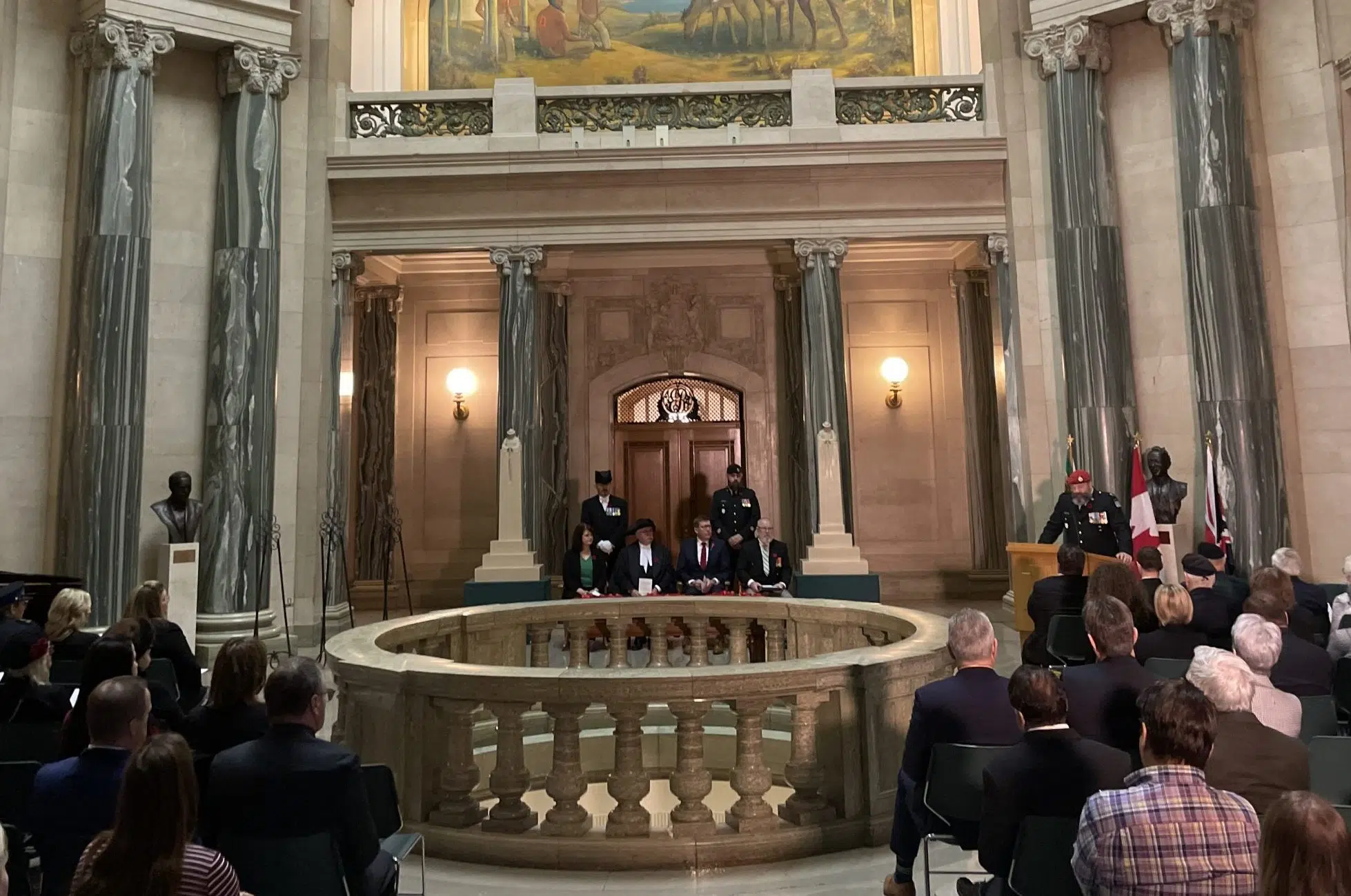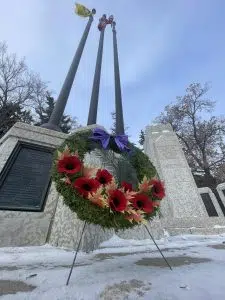The most recent Saskatchewan resident to die in a war was top of mind during a Remembrance Day service Wednesday at the Legislative Building.
Premier Scott Moe paid tribute during the ceremony to Joseph Hildebrand, a 33-year-old from Herbert who died fighting in Ukraine earlier this week.
“Joseph was a true Saskatchewan hero,” said Moe.
Hildebrand served two tours with the Canadian Armed Forces in Afghanistan before volunteering to fight on the front lines in Ukraine.
“His decision to take up arms once again was a remarkable demonstration of courage and selflessness,” said Moe.
Hildebrand was killed in fighting near the Ukrainian city of Bakhmut. He leaves behind his wife and a daughter.
Moe said he and his government are “appalled and sickened by the loss of life” that has happened since Russia invaded Ukraine. This is the first Remembrance Day in eight decades to occur while a war is taking place in Europe.
People stood with their heads bowed and poppies pinned over their hearts to mark a moment of silence as the Last Post echoed through the rotunda.
Moe also laid a wreath in front of the Saskatchewan War Memorial on the west side of the Legislative Building to remember all those who have been lost in war and those who are still fighting.
A wreath laid by Premier Scott Moe at the Saskatchewan War Memorial on Nov. 9, 2022. (Gillian Massie/980 CJME)
“(It’s to pay tribute to) the honour and the extraordinary sacrifice of thousands of men and women from across our province of Saskatchewan,” said Moe, “those who courageously served in war, and peacekeeping missions around the world, and all of those in uniform who safeguard our province today.”
This Remembrance Day recognized the 80th anniversary of the raid on Dieppe, which occurred on Aug. 19, 1942. Eighty-four men from the South Saskatchewan Regiment were killed in the failed attack on the French town.
The ceremony Wednesday was followed by piano and trumpet music and by Rev. James Balfour speaking about his grandfather, who fought in the First World War.
Balfour’s grandfather was a farmboy from Balcarres who lied about his age to enlist in the military. He was on the front lines for the last 100 days of the war.
When Balfour’s grandfather returned home, he found it very difficult to talk about what happened.
“Remembrance Days were always very difficult for my grandfather. He never spoke about what he did, what he saw or what he felt … It just wasn’t his way,” said Balfour.
On one memorable Remembrance Day in 1968, Balfour said he began to understand his grandfather’s silence.
When First World War veterans were asked to bring one guest to stand on the steps of the Legislative Building, his grandfather took eight-year-old Balfour.
When they arrived and took their place on the steps, Balfour said something remarkable happened after they entered the 11th hour of the 11th day of the 11th month.
“Suddenly, all of these men and women bent by age and life and circumstance, they straightened up,” said Balfour. “My grandfather took my hand and he didn’t let it go for the next hour.
“He didn’t speak. He didn’t need to … That holding of my hand told me everything he needed to say.”












